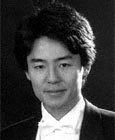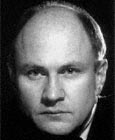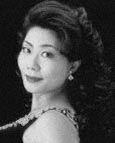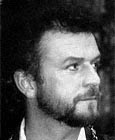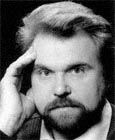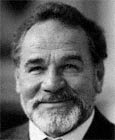|
|
2004.9
Cavalleria Rusticana / I Pagliacci |
| [Cavalleria Rusticana]
Music by Pietro Mascagni
Libretto by G.Targioni-Tozzetti / Guido Menasci
-MAIN CAST-
Santuzza: Elisabetta Fiorillo
Lola: Sakamoto Akemi
Turiddu: Attila Kiss
[I Pagliacci]
Music and Libretto by Ruggiero Leoncavallo (1892)
-MAIN CAST-
Canio: Sergej Larin
Nedda: Juliette Galstian
Tonio: Georg Tichy
Silvio: Rudolf Rosen |
| OPERA HOUSE
7 performances
September 9(Thu)6:30, 11(Sat)3:00, 13(Mon)6:30, 15(Wed)7:00, 18(Sat)5:00,
20(Mon)3:00, 23(Thu)3:00 2004
Approximate running time: 2 hours, 50 minutes with 1 intermission
Conductor: Ban Tetsuro
Director: Grischa Asagaroff
Scenery Design: Luigi Perego |
|
| |
| Background |
| Two major pioneer verismo (realism) operas,
Cavalleria Rusticana (Rustic Chivalry) and I Pagliacci
(Traveling Players) are frequently performed throughout the world.
After two great masters, Verdi from Italy and Wagner from Germany,
brought opera to the height of its prosperity in the 19th century,
the verismo literary and artistic movement emerged in Italy
at the end of the century. The two operas are examples in which realism
was pursued in the composition of opera. Royalty and nobles, heroic
deeds by gods, history and profound philosophy, which had theretofore
been the subjects of opera, disappeared, and instead, events that
could happen to the daily lives of ordinary people who lived in the
contemporary age became the subject of drama. In terms of music as
well, decorative notes were eliminated and the dynamism of sentiments
were sung directly and passionately. These two works have been customarily
performed as a double bill from the time Toscanini presented them
together in Rome in 1893.
Cavalleria Rusticana
The title means “rustic chivalry.” Mascagni entered
a one-act opera competition and successfully won a prize, and owing
to the great success of its premiere at the Teatro Constanzi di
Roma, the 26-year-old unknown composer suddenly leapt into worldwide
fame. Subsequently, he wrote 15 operas, although none of which surpassed
his first work in popularity. The tense drama rushes to its end
giving the audience not a moment’s respite. Highlights include
Santuzza’s aria “Voi lo sapete, o mamma (You
know well, Mamma)” in which she sings her anguish as she is
distraught by Turiddu’s unfaithfulness, the beautiful yet
pathetic intermezzo and Turiddu’s aria “Mamma, quel
vino è generoso (Mamma, that wine is strong),”
in which he bids his mother farewell sensing that death may await
him.
I Pagliacci
Stimulated by Mascagni’s great success, Leoncavallo applied
to enter the same competition. Although his entry was ineligible
since it was a two-act opera, its first performance by Toscanini
at the Teatro dal Verme in Milan was a triumph. The announcement
given by Tonio, a member of the troupe of traveling players, to
the audience in the prologue and a “play within a play”
in Act II follow the style of improvised masques called “commedia
dell’arte,” which flourished in Italy between the
16th and 18th centuries, and as the play intermingles with reality,
these techniques dramatically express the agony and derangement
of the clown who was betrayed by his wife. One can say that Canio’s
famous aria “Vesti la giubba (On with the motley)”
is the climax of the work.
|
| Synopsis |
Cavalleria Rusticana
It is the end of 19th century. The villagers assemble at the plaza
in front of the church in the Sicilian village of Vizzini and enter
the building. The young villager Turiddu had a lover named Lola, but
when he left to do his military service, the drover Alfio married
her. In order to vent his anger, Turiddu seduces Santuzza, and Lola,
jealous of his action, goes back to Turiddu, who has not been able
to give up his love for his former lover. Santuzza tries to seek advice
indirectly from Turiddu’s mother Lucia but fails to find a solution.
She presses Turiddu hard with questions but is vilified by him, and
he disappears into the church chasing after Lola. In a fit of jealousy,
Santuzza tells Alfio all that has happened. Alfio swears vengeance.
After the mass, Turiddu is drinking with his friends at Lucia’s
tavern when Alfio, burning with rage, appears. Having realized the
situation he is in, Turiddu accepts Alfio’s challenge to a duel.
Pretending to be drunk, he obliquely bids his mother Lucia farewell
and leaves. After a while, the cry of a single woman rises shrilly:
“They have murdered Turiddu.”
I Pagliacci
In the prologue, the clown Tonio appears in front of the curtain
and announces to the audience that “clowns, too, are human
beings, of flesh and blood, and have the same feelings of happiness
and sadness as ordinary people.” The curtain rises on a village
in Calabria, southern Italy, in the 1860s. The time is August 15,
on the feast of the Assumption. The troupe of traveling players
led by Canio arrives in the village. Tonio, a clown in the troupe,
who is in love with Canio’s wife Nedda, the troupe’s
pretty actress, makes advances to her behind Canio’s back
but is rejected by her and entertains unjust resentment. Nedda loves
Silvio, a young villager, and exchanges promises with him to run
away together. Tonio overhears their plan and advises Canio thereof.
Canio is outraged as Nedda does not confess her lover’s name,
but as it will soon be time for their performance, he puts on the
motley while musing bitterly, “Even when I weep sad tears,
I have to play the clown.” The curtain rises for a “play
within a play.” Columbine, played by Nedda, has taken her
lover into her house while her husband is away and is having dinner
with him. Canio, who is playing the role of her husband, is now
unable to distinguish the play from reality and severely denounces
Nedda for her betrayal on stage. The audience applauds his realistic
acting, but in a fit of rage, he stabs Nedda first and next Silvio,
who rushes to her from the audience seat. Canio mutters, “The
comedy is over!” |
|
| |
<Conductor> |
<Director> |
<Scenery Design> |
|
|
|
Ban Tetsuro |
Grischa Asagaroff |
Luigi Perego |
|
<Main Cast / Cavalleria Rusticana> |
|
|
|
Elisabetta Fiorillo |
Sakamoto Akemi |
Attila Kiss |
| <Main Cast / I Pagliacci> |
|
|
|
|
Sergej Larin |
|
Georg Tichy |
Rudolf Rosen |
|
